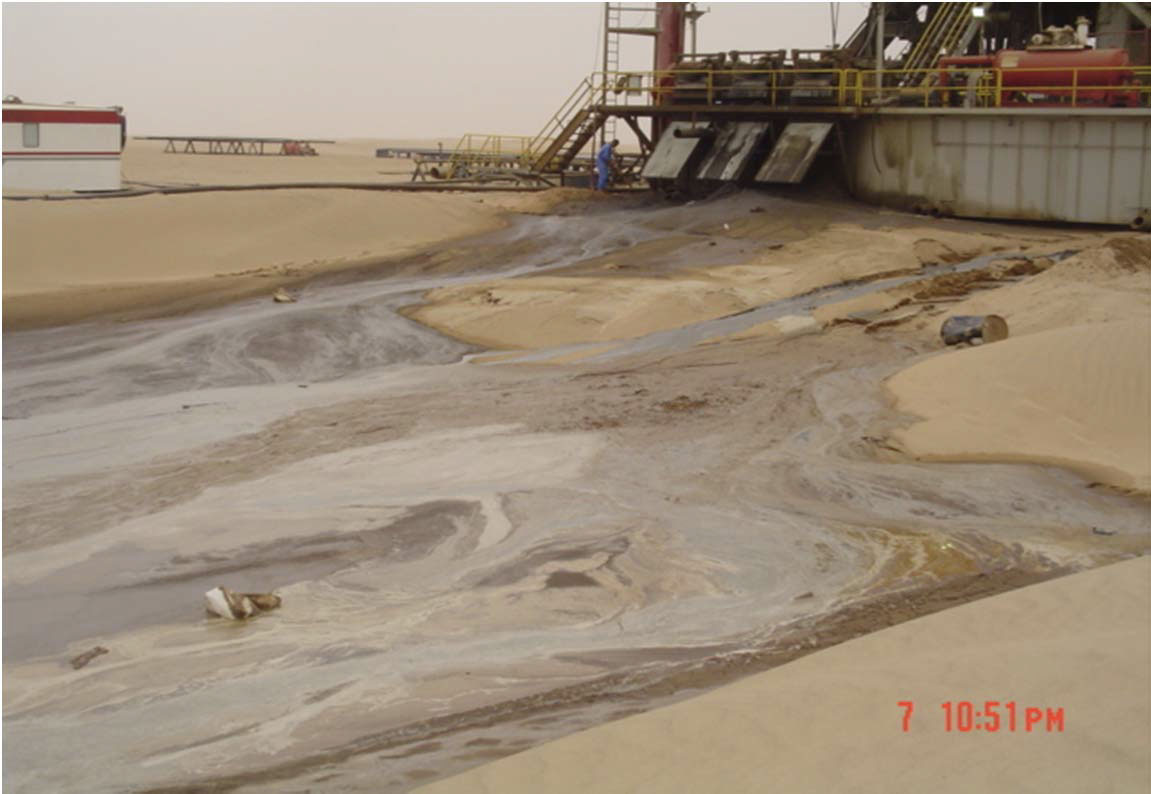Dr. Abdulkader Kharraz, the former chairman of Yemen’s Environment Protection Authority (“EPA”) and now a full-time environmental activist, took the case to the ICC in December, not long after OCCRP exposed a lack of environmental accountability for oil companies in Yemen.
The OCCRP story was based on an unpublished 2014 expert report commissioned by Yemen’s parliament. It describes over 30 environmental violations carried out by more than a dozen oil and gas companies and their affiliates between the early 2000s and late 2014 when the civil war broke out.
Oil was discovered in Yemen in the 1980s and foreign companies rushed to the country to exploit it. With the outbreak of the civil war, many of them left, and state companies that took over the industry have allegedly continued the devastation.
Residents blamed toxic drilling fluids that were being released into the soil for falling crop yields and a rise in illnesses such as cancer and kidney disease.
“Oil pollution resulting from the direct discharge of hazardous waste, the burial of this waste, and the release of emissions without any treatment methods cause many serious diseases in communities living near oil fields,” Kharraz argues in his submission to the court.
As the head of the government’s environmental agency, Kharraz, during his two-year-long tenure, repeatedly complained about the pollution caused by the state-owned Safer Exploration and Production Operations Company (“Safer”). The prime minister eventually replaced him in 2019, and he left the country after receiving threats.
In 2020, Kharraz sued Safer at a local court for burying hazardous chemical products and drilling waste. He sought compensation on behalf of dozens of cancer patients, but his legal proceedings stalled in Yemen’s courts, with the company rejecting the accusations and its lawyers challenging technical details of the proceedings. The original judge on the case recused himself that year, and other judges have refused to reopen the case since.
Kharraz has now taken the case against Safer and another company called Hunt to The Hague. The U.S-based Hunt Oil Company operated until 2005 the so-called Block 18, an area where its experts discovered the first oil in Yemen in 1984. Among other violations, the parliamentary report blames Hunt for releasing dangerous levels of nitrogen oxides in the air and the improper storage of hundreds of barrels of expired chemicals.
A spokesperson for Hunt told OCCRP on Sunday that the company does not wish to comment on the lawsuit, while Safer did not reply to a request for comment by Tuesday.
Kharraz said he was also preparing a list of government officials “who contributed to the coverup of this pollution and damage.”
Individuals can approach the ICC as a permanent international court specialized in crimes against humanity, and ICC prosecutors have the power to undertake an investigation if they receive credible information.
But there is a catch.
The crimes have to be “committed by a State Party national, or in the territory of a State Party, or in a State that has accepted the jurisdiction of the Court,” according to the ICC.
Yemen has signed the Rome Statute, the founding treaty of the ICC, but has not ratified it, thus it is not a state party.
“This does not prevent the opening of an investigation, as there are cases in the court for countries that have not ratified the treaty,” Kharraz argues. “They may have been focused on war crimes, but in my view, it shows that the court has the ability to investigate non-party states.”
So far, the ICC only confirmed that it has received his complaint.
“We’ve known for a long time that existing crimes in the Rome Statute can overlap with environmental issues,” Richard Pearshouse, director of the environment division at Human Right Watch, told OCCRP.
The international court declared it was going to prioritize environment-related cases from 2016 onwards, “but over the last eight years, we’ve seen little in terms of follow-up,” he said.
“That’s disappointing because broadly speaking, we’re going to see more and more overlap between Rome Statute crimes and environmental issues as increasingly scarce natural resources come under more pressure, and the climate crisis wreaks more havoc,” Pearshouse explained.
Kharraz hopes the ICC will consider his request because he has lost hope that Yemeni authorities will ever seriously hold oil companies accountable or remediate the extensive damage caused.
“That’s why I am trying an international action, and I will make sure to communicate the extent of people’s suffering. I will tirelessly work to hold those responsible accountable, force them to address the pollution’s effects, and to compensate the victims. I will knock on all doors, regardless of the obstacles.”

